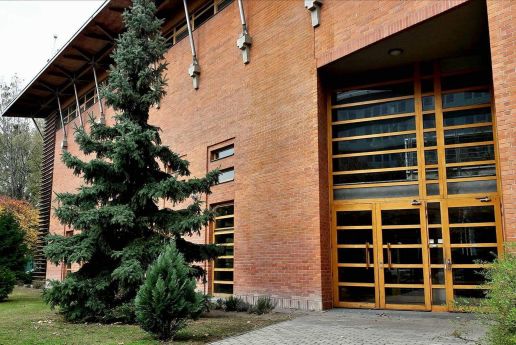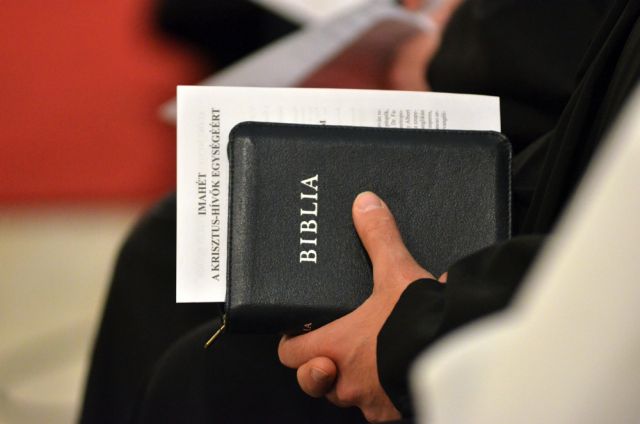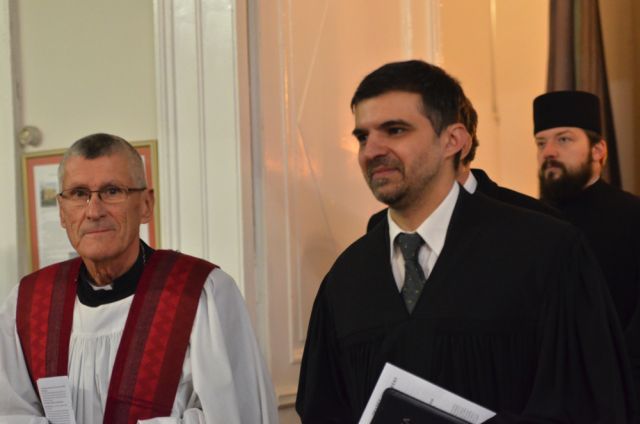Reflexion on the Open letter of CEC “What future for Europe?”
Reaffirming the European project as building a community of values
Presented by the Committee on Social-ethics of the Ecumenical Council of Churches in Hungary
The open letter calls us for dialogue about the crucial issue of the future of our continent. We wholeheartedly welcome the openness of the letter and the joint effort to search for new ways in the spirit of the Charta Oecumenica, just like the tone and sobriety of the letter as it reveals the fragmented positions in Europe. Besides the common cause, the document also recognizes the legitimacy of national interests, the disappointment of many citizens and the doubts regarding the issue of common values. It is highly important that we approach these questions in a straightforward and honest manner. Speaking publicly about the future from a Christian perspective always involves risks, and has to include the critical assessment of the present situation, based on the Scripture. This includes the fact that in a “global and international approach” Europe doesn’t play a leadership role anymore, other continents and regions having an increasing power and ability to influence development shaping our future. At the same time, it is utterly important that even ‘in minority’ we sat an example and raise our voice regarding our common future.
In this spirit we offer following comments to the letter:
1. In the pursuit for more cooperation and unity in Europe we are not only confronted with challenges of our time, but also challenged by the differences which are there between North and South, West and East. Citizens of post-communist countries have different experiences and expectations about democracy, rule of law and globalisation than those who never lived under Soviet rule. In these countries churches survived in and through isolation, as sort of “islands”, and now they are facing the challenge that overcoming old patterns of isolation and engaging in trustful exchange with others and partnership is not a smooth process. In this regard, the question is not only how to integrate post-communist countries economically and regarding the infrastructure, or what the average speed of the two-speed Europe would be. The real issue is whether and how Western and Eastern European countries can foster mutual understanding and successful communication. It is our conviction that churches, based on their shared theological heritage and tradition, common spiritual and historical experiences, can play an important role in this dialogue, both as it regards the critical, sincere assessment that honours contextual realities, and the vision for the common future. Instead of an emotional and moralizing attitude an objective approach is required, and it is crucial to engage in analysing the actual situation honestly and professionally.
2. Critical discussion about objectives is a clear sign of the current crisis. This is being recognized in the document. But what actually are the root causes of the crisis? Dis it emerged only due to loss of values? Values can only be defined and interpreted within a frame of reference. Values emerge and are shaped by conviction, identity and attitude, not the other way around. Following and adhering Christian values doesn’t make anybody Christian. The Protestant notion of justification is a strong reminder of this fact in the jubilee year of Reformation. Loss of values is not cause but symptom of the crisis. We have to raise the fundamental question which is reflected also in the letter. In reference to Jacques Delors’ quote (IX) we have ask whether the “soul of Europe” is truly Christian? What actually means for the continent being Christian? Where and under which criteria can we identify the Christian existence based on which churches can play a role in shaping the future of Europe? How can Christian commitment be identified where secularized European citizens and immigrants could feel encouraged to join? Who is a Christian? The one who protects what he/she doesn’t even possess or the one who is willing to give up what he/she has? Though the discussion about values is inevitable, we shall approach the question of Christian identity in a more dynamic manner, under the notion of Christian witness and strive to re-discover and re-affirm our common values from this perspective.
3. The logic of commitment and action implies that the order of “diaconia and koinonia” (XI) should be reversed: “koinonia and diaconia”, because the acts stemmed from. We consider that the tolerance towards other cultures and religions is not rooted on moderating of our own Christian identity, but rather on its gentle strengthening. Religious moderations, like not using the symbol of cross in order to not harm the world, is not a real tolerance. The cross means the love of God who gave his Son for the whole world. These kind of moderated suppressions imply the worst forms of intolerance as the anti-multicultural violent awful events demonstrated in the Netherlands (Pim Fortuyn ✝2002, Theo Van Gogh ✝2004), and in Norway (Anders Breivik 2011).
4. Nevertheless, the EU is attractive for the outsiders who want to join to us (13). But do they come here because of the charm of a committed Christian Europe? Or do they come here because of the exploitation of a rich, vainglorious, but weakening Europe? Why the rich and flabby Europe is so hospitable? Because of her weakness or because of her strength?
5. With raising the questions above we can see more clearly the phenomena that are sometimes one-sidedly presented in the letter. Hungary built a legally and technically justified barrier on its border for the sake of the preventing immigrants from entering illegally. On the one hand, the fence is communicated as the protection of Christian culture and values, but on the other hand, the anti-immigrant campaign implied a general xenophobia. The collective fear that is far away from the Christian courage has became typical in our society. With no doubt, the protesters in Maidan Square in Kiev died wearing EU twelve star armband for their freedom (13), but let us note that this protest could conclude the forms of Ukrainian nationalism as well.
6. When we talk about the future, we should consider the apocalyptic signs that claims a collective courage to be that also includes the real threatening of not-being. The peacekeeping requires an open and mindful efforts of all nations. The withdrawal of USA from the Paris Agreement makes the future of our planet be absolutely uncertain. The quitting of USA and Israel from UNESCO because of “anti-Israel bias” runs the risk of keeping the world-peace, and focuses on the region where the history of humankind begun and will terminated. Against all failures of our human hope, can we still hopefully believe in Christ who gives the Kingdom of God to us, where we together with our partners and rivals will joy by Heavenly Father?
7. For the CEC General Assembly we recommend to publish a short, soul-stirring, sensible, advised statement based on the biblical revelation and the Christian hope, that is relevant and easily understandable for all believers in Europe.























